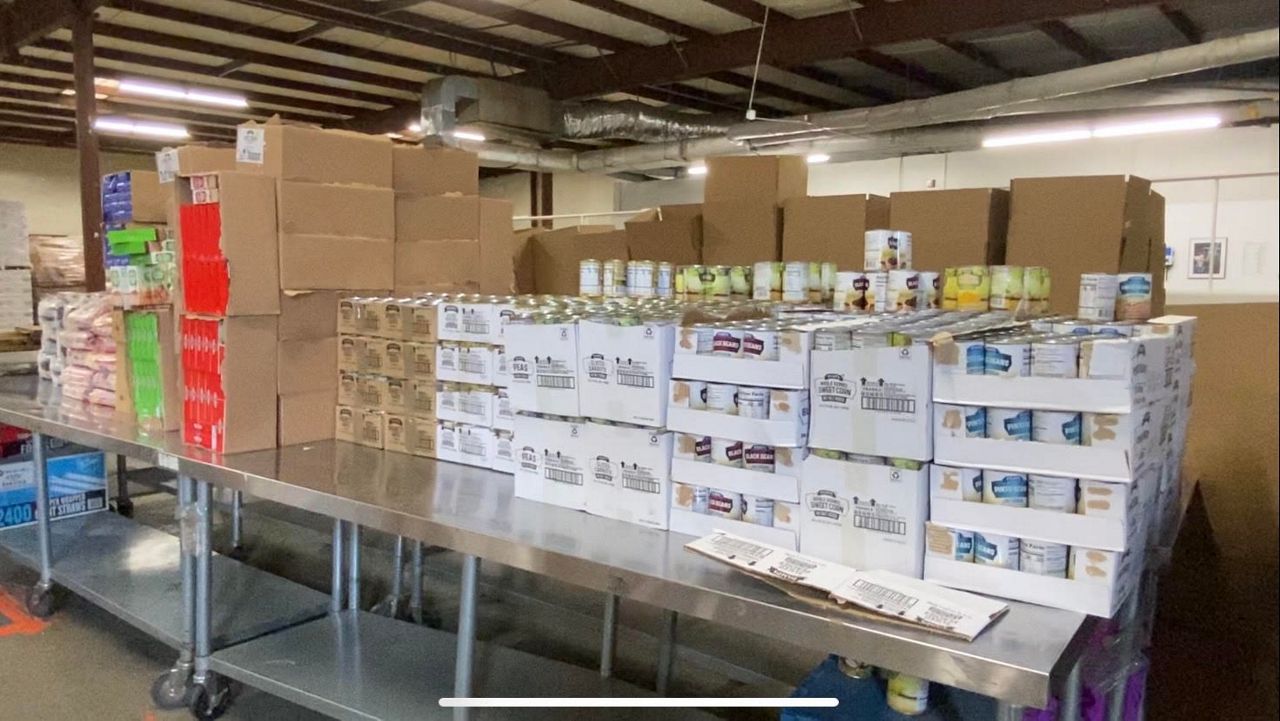CLEVELAND — With rising food costs and pandemic-era federal programs expiring, the Greater Cleveland Food Bank’s Kimberly LoVano expressed concern about the organization’s ability to provide meals for people in the area.
LoVano, who serves as the director of advocacy and public education for the food bank, expressed her concerns directly to Sen. Sherrod Brown, who hosted a conversation on his Facebook page.
LoVano told Brown that the food bank served one-in-five northeast Ohioans during last year’s fiscal year. She said that 25% of those seeking assistance had never needed emergency assistance in the past.
“Those were folks who fell on tough times because of the pandemic and had to turn to us,” she said.
With additional people in need of food and increased costs, LoVano said the organization has needed to purchase more food to provide for northeast Ohioans. She said that the Cleveland Food Bank is purchasing 2.5 times the amount of food now compared to before the pandemic.
“That translates to millions of pounds of food, so when food costs go up, we feel it,” she said. “Any small increase, we feel it when we’re purchasing food by the millions.”
LoVano said the organization is bracing for additional impacts as 2022 approaches. She said the amount of food the food bank can distribute through the Emergency Food Assistance Program will be reduced from 1.2 million pounds per month to 400,000 pounds a month.
“That means we’re purchasing a lot more food to keep up with growing demand,” she said.
The cost of food at grocery stores has increased 5.4% from October 2020 to October 2021, according to the U.S. Department of Agriculture. Meat prices have especially increased in the last year, with the price of beef and veal jumping 20.1%, the USDA reports. Cost increases for fresh fruits and vegetables have been more modest.
LoVano said that the food bank is also monitoring the ending of an expanded Child Tax Credit, which provided qualifying families with additional tax credits in 2021. Starting in July, many families received monthly payments through the expanded program. That program expires at the end of 2021.
LoVano said that the additional funds have helped families purchase necessities. She said the average Ohio family is receiving $440 a month through the program.
Some Democrats, including Brown, have pushed to make the program permanent.
“It has meant so much to families,” she said.
An extension of the Child Tax Credit is a key policy initiative being pushed by the Biden administration as part of the president’s Build Back Better plan. Republicans, however, say that the proposals in the Build Back Better plan would exacerbate inflation.
“If you believe these programs go away after one, two or three years, you shouldn’t have a driver’s license,” said Sen. Lindsey Graham of South Carolina, top Republican on the Senate Budget Committee. He said the bill’s higher price tag and rising inflation meant Democrats’ legislation would be “lethal to the economy and lethal to your paycheck.”
There are 13 food banks under the Feeding America umbrella. Feeding America says that one-in-eight Ohioans are facing hunger. Ohioans facing hunger are estimated to report needing $757.3 million more per year to meet their food needs.
The Associated Press contributed to this report.



